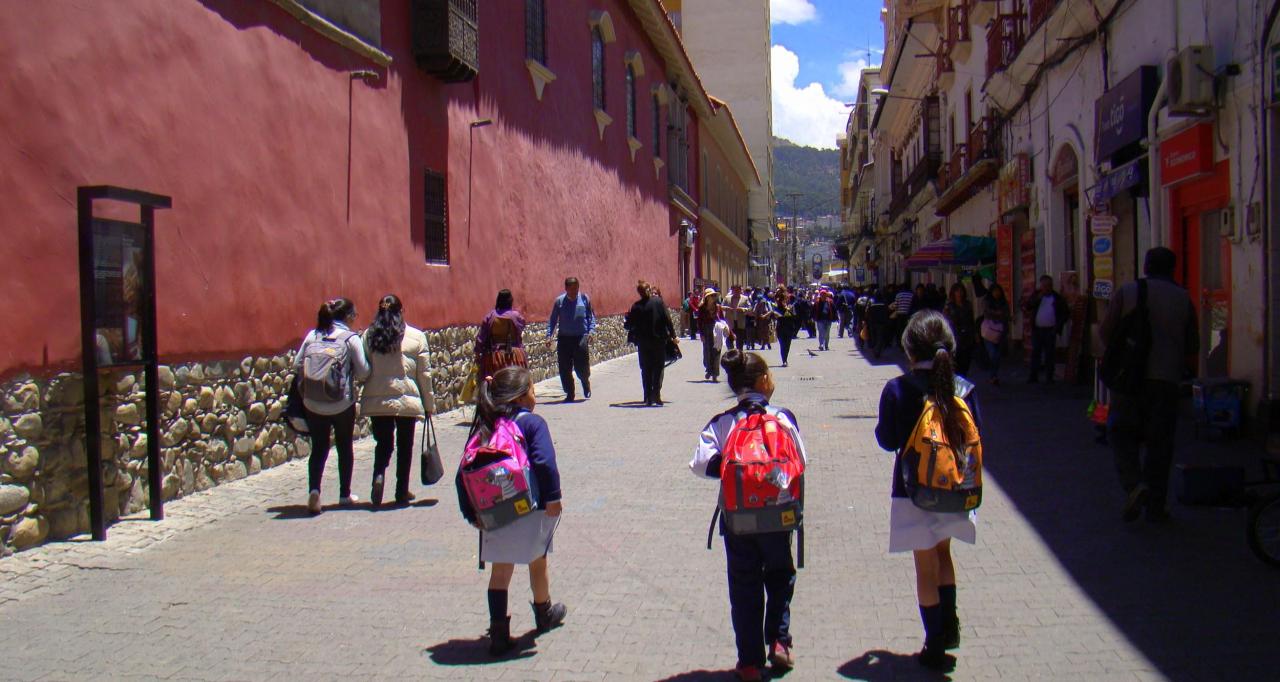This article describes three peculiarities that ARU Foundation found during its research for the “State of the SDGs” initiative on the implementation of Quality Education (Sustainable Development Goal 4) in Bolivia. The full report “A country at risk of being left behind: Bolivia’s quest for quality education” can be found here.
1. Lack of data on education quality
Many Latin American countries are conducting surveys or have recently participated in international education achievement tests to monitor and improve their education systems. Bolivia, however, stands out for not updating its data on this matter for more than two decades. Since 1997, Bolivia has not participated in any international education achievement test, such as PISA, TIMSS, and SIMECAL. This lack of a transparent assessment of education quality makes it extremely difficult to evaluate the education system and assess the implementation of SDG4 in the country.
On a positive note, in 2016 the Bolivian Ministry of Education and UNESCO’s Latin American Laboratory for the Assessment of Education Quality (LLECE, for its acronym in Spanish) signed a letter of agreement. The aim is to work together to measure the student’s achievements. Under this cooperation, the Plurinational Observatory of Student Quality (OPCE, for its acronym in Spanish) has been improving its capacities and is planning to evaluate the quality of education in Bolivia this year. The only drawback is that, according to public statements, results will be submitted in 2020. Hence, for the time being, we will continue struggling with Bolivia’s lack of data on education quality.
2. Lack of a Voluntary National Review
In 2015, Bolivia agreed to adopt the United Nations 2030 Agenda, along with other 192 UN Member States. However, the Bolivian government has not prioritised the implementation of the 17 Sustainable Development Goals (SDGs).
Unlike other countries in the region, Bolivia has never published a Voluntary National Review (VNR). For this year it has missed, yet again, the deadline for presenting one. The 2030 Agenda asks UN Member States to present these VNRs at the High-Level Political Forum on Sustainable Development (HLPF), which takes place in New York every September. It is meant as a way of monitoring progress on SDGs implementation. Focusing solely on SDG 4, such a review is important for Bolivia. It would paint a clear picture of the progress made, the government’s commitment to achieving this goal, and the next steps to take. Currently, only two South American countries have yet to publish a VNR: Bolivia and Suriname. However, according to the Resident Coordinator of the United Nations Systems in Bolivia, the government has shown interest in conducting its first VNR for 2020.
3. Lack of efficient government spending?
According to UNESCO’s Education Data Base, Bolivia has the highest government expenditure on education as a percentage of GDP in South America. In 2014, the Bolivian government spent 7,29% of its GDP on education. That same year, the governments of Argentina, Brazil, Chile and Colombia spent between 4-6% of their GDP on education. But high expenditure does not automatically equal better education. In fact, it makes the need for international education achievement tests all the more urgent.
The assessment of SDG 4 implementation in Bolivia remains challenging. We need more data on the quality of education. Only then will we be able to ask the right questions and answer them accurately. Ultimately, that can help devise the path this country needs to follow to improve its educational system.
About the SVSS initiative
Southern Voice’s “State of the SDGs” initiative provides evidence-based analysis and recommendations to improve the delivery of the Sustainable Development Goals (SDGs). As a collaborative initiative, the program compiles a broad range of perspectives that are usually missing from international debates. This report aims to fill an existing knowledge gap. Southern Voice is confident that it will enrich the discussions on the SDGs and level the playing field with new voices from the Global South.


